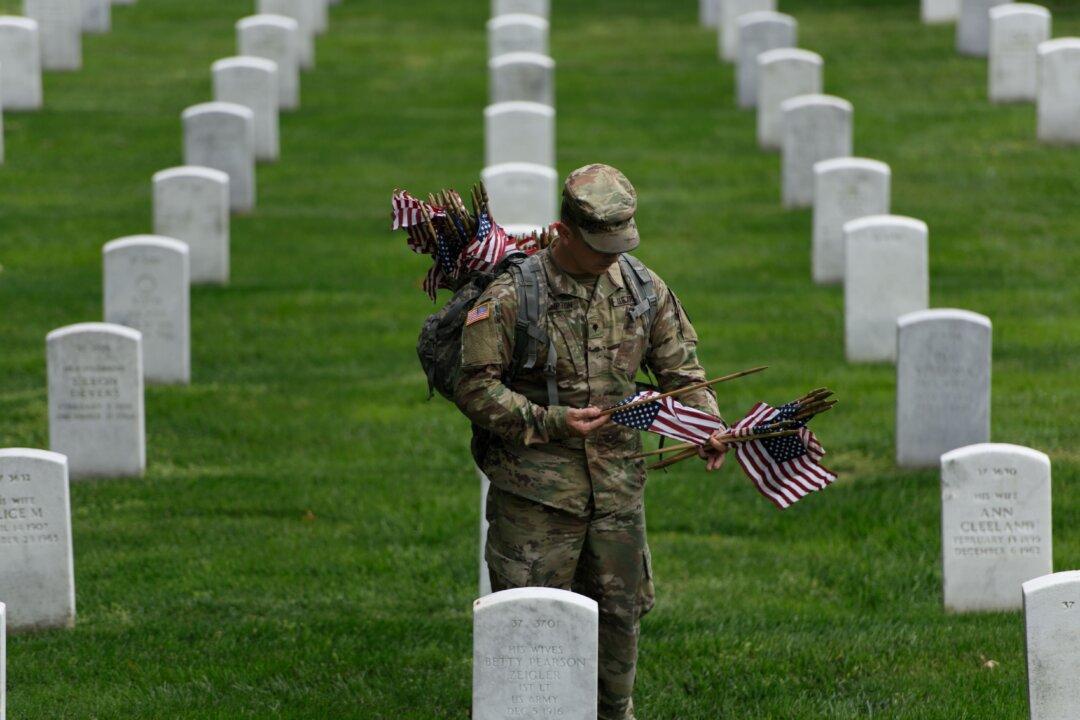The number of suicides among active-duty military members was higher in the first three months of this year than in the first quarter of 2022, according to a new Pentagon report.
The number of military suicides rose 25 percent, from 75 in the first quarter of 2022 to 94 in the first quarter of 2023, the Defense Suicide Prevention Office stated in its annual report (pdf).




